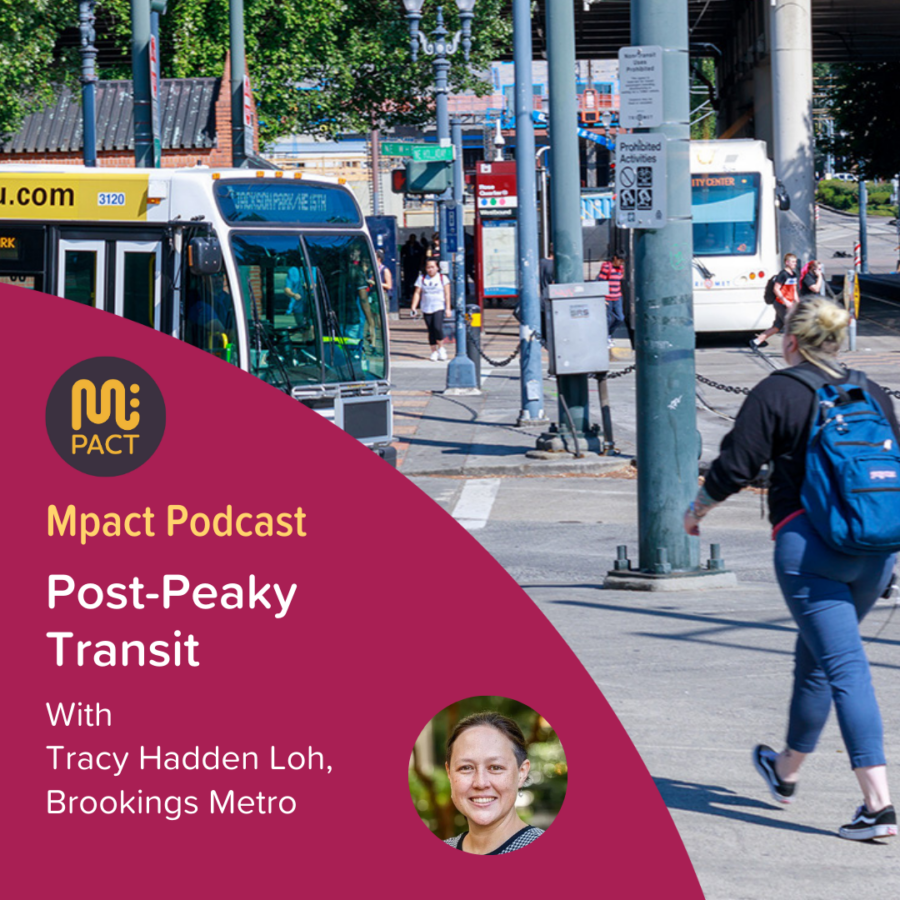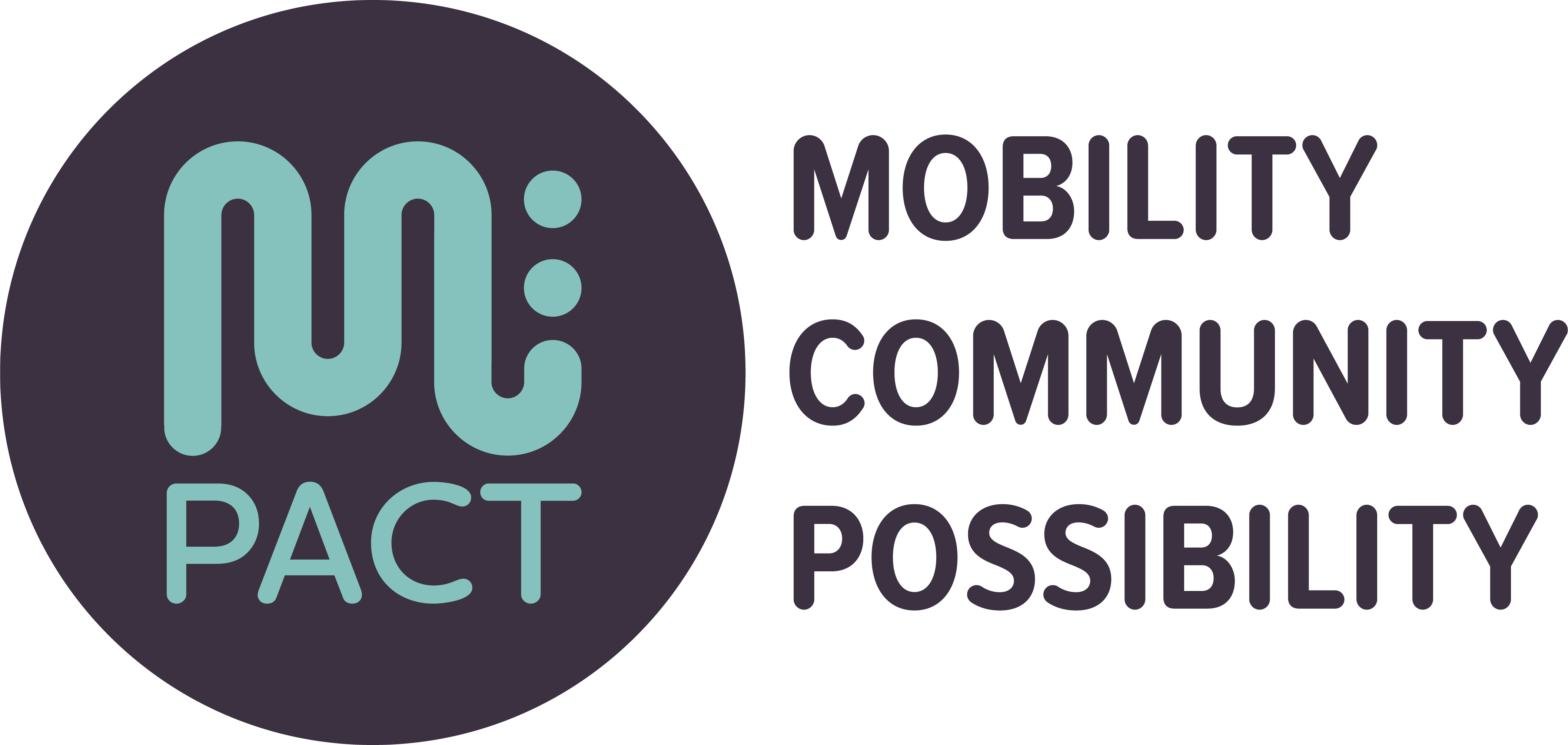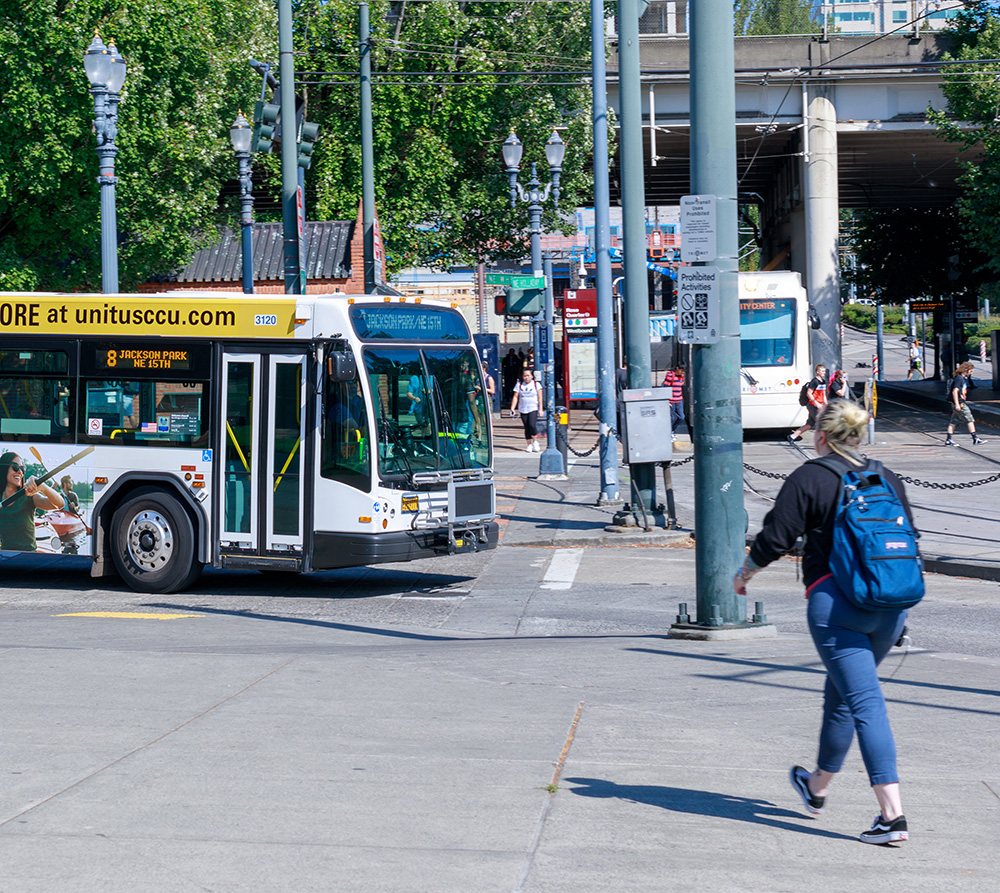Episode 80: Post-Peaky Transit
Tracy Hadden Loh, a fellow at Brookings Metro, takes us through post-pandemic trends related to downtowns, activity centers and transit. She also touches on the ways developers and communities can align around transformative projects.
Tags: Brookings Metro, Tracy Hadden Loh

Unedited Transcript Mpact Podcast Episode 80: Post-Peaky Transit, with Tracy Hadden Loh, Fellow, Brookings Metro
Even before the pandemic, the average square feet of office space per worker was declining. And even before the pandemic, there was a suburbanization of jobs. The pandemic accelerated these trends, forcing everyone to adapt faster. On this podcast, Tracy Hadden Loh, a fellow with Brookings Metro, connects the dots, in a fascinating conversation about how connections have changed and transit can adapt.
Downtowns are not the only activity centers in a region, Loh points out, and most people are not office workers. The transit agencies that excelled at serving the peak rush hour downtown office commute are now seeing the highest rates of people working from home. Meanwhile, some transit routes, especially buses, are exceeding pre-pandemic levels. While downtowns remain the heart of a region and getting to work a fundamental trip, the future of transit, Loh suggests, is more frequent, all-day service and providing connections neighborhood to neighborhood or suburb to suburb. And land use that puts more housing near jobs.
In a moment of geeky zen, Loh describes the project at Brookings Metro to map activity centers, from downtowns to suburban clusters to potentially overlooked concentrations of assets. These new regional patterns (downloadable as shape files from brookings.edu) can aid transit, land use and other planning.
The podcast conversation also touches on a new report, Building Better, focused on building understanding between developers and communities. There’s lots of frustration about “cosplaying equity and inclusion,” Loh says, and a “desire for new ways of embodying values and delivering real results.” The report, which includes focus on the Navy Yard redevelopment in Philadelphia, shares specific approaches to more inclusive projects.
“If you go out of your house, you know, everyone can see traffic is back. If traffic’s back, then that means there is a future for transit. It’s just going to look different than it looked in the past. Because the days of being able to justify your existence as a service just by taking office commuters from the suburbs to the center, those days are gone.” – Tracy Hadden Loh
Resources and Links
Featured Guests

Tracy Hadden Loh, Fellow – Brookings Metro, Anne T. and Robert M. Bass Center for Transformative Placemaking
Tracy Hadden Loh is a Fellow with the Anne T. and Robert M. Bass Center for Transformative Placemaking at Brookings Metro, where she integrates her interests in commercial real estate, infrastructure, racial justice, and governance. She serves on the boards of the Washington Metropolitan Area Transit Authority and Greater Greater Washington. Her most recent writing includes two co-authored chapters in Hyperlocal: Place Governance in a Fragmented World and a series on the future of downtowns, including what to do about public safety and adaptive reuse. She also previously served two years on the city council of Mount Rainier, a small town in Prince George’s County, Maryland.


